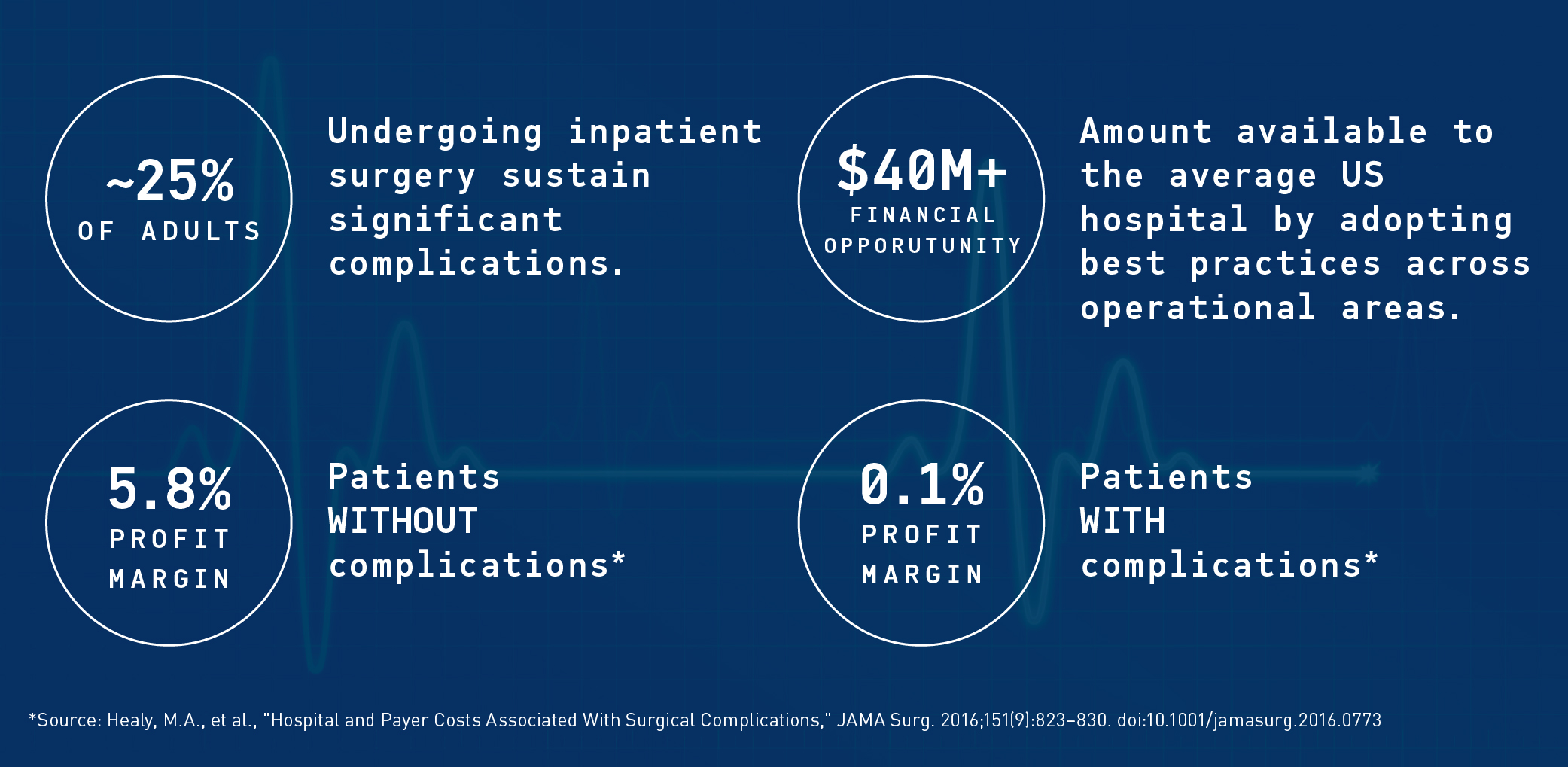A Comprehensive Approach to Improving Your Surgery Program

Optimize Quality. Maximize Margins.
Nothing impacts hospitals clinically and financially more than surgery, yet only a small number of hospitals implement the best practices needed to achieve optimal results.
Effectively improving surgery requires a comprehensive approach that looks at every detail, from the moment the patient is scheduled for surgery through one month after discharge.
Real improvement requires a thorough understanding of your current surgery program and the expertise to optimize the interlinked elements that drive great performance, including quality, OR operations, supply chain, financial systems, people, and culture.
Efficient Surgery, Healthier Hospital Finances
The financial health of a hospital is intimately linked to your surgery systems, outcomes, and efficiency, but many facilities fall short in adopting evidence-based best practices that have been proven to enhance performance and reduce risks.
ASCs are driving scalable surgical success

With operating margins averaging 25 to 30 percent and outpatient revenue growing faster than inpatient, ambulatory surgery centers (ASCs) offer a more efficient and profitable model for surgical care.
Deficits That Hurt Surgical Quality
Pre-Op
- Substandard preoperative evaluation and optimization
- Incorrect and wasteful preoperative testing
- Inadequate patient risk assessment and advanced care planning
Intra-Op
- Incomplete patient information provided to anesthesiologists
- Patients not optimized prior to surgery
- Care optimization missed due to inadequate preoperative risk assessment
Acute Inpatient Care
- Poorly organized care teams
- Multidisciplinary rounding underutilized
- Inpatient care providers lack preoperative medicine specialization
Discharge/Post-Discharge
- Lack of advanced discharge planning
- Inadequate post-discharge management systems
- Inadequate medication reconciliation and post-discharge patient follow-up



